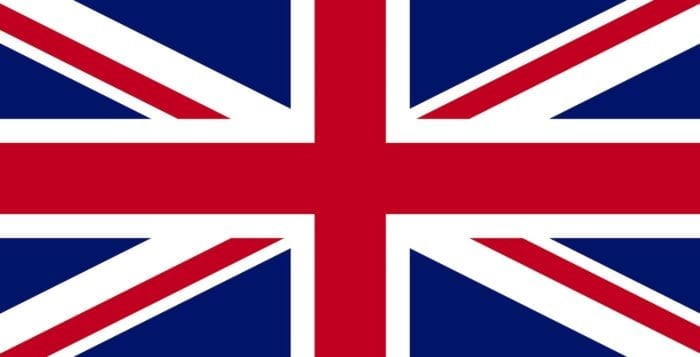By John Broven
Part 1 of 2
After 46 years, the United Kingdom of Great Britain and Northern Ireland is due to leave the European Union March 29 in an exercise that has been labeled Brexit. You may have heard the term on BBC World News, C-SPAN2’s “Prime Minister’s Questions” and John Oliver’s “Last Week Tonight” (HBO), or read about the ongoing saga in The New York Times or The Washington Post. Still, in general the United States media coverage has been relatively muted in what has been a complex, often hard-to-understand process. Yet there are enough parallel circumstances across the pond to warrant making it a big news event over here in the U.S.

It certainly matters a lot if, like me, you were born in England and are not happy with the Brexit decision. Before I proceed with my personal observations, let me give a brief backdrop to the Brexit scenario.
Brexit is a crude abbreviation of “British exit” from the European political and economic union of 28 countries that allows seamless movement of goods and citizens between each member state. Britain’s withdrawal was determined by a referendum held June 23, 2016, in which the “leave” voters outpointed the “remain” side by 17.4 to 16.1 million. In percentage terms it was 51.89 to 48.11. The turnout was some 33.5 million voters out of a possible 46.5 million, 72.1 percent of the registered electorate. As I’ve been living over here for more than 15 years, I was not allowed to vote along with an estimated 700,000 expats and some 3 million EU citizens living in the UK. Gerrymandering, anyone?
The UK referendum
I well remember the day when Prime Minister David Cameron (Conservative) announced there would be a referendum for Britain to leave the EU after he was re-elected in the general election of May 7, 2015. He had been the country’s leader since 2010 in a coalition government with the pro-European Liberal Democrats, but against all expectation the Conservatives won the election outright. At the time I asked myself, “Why call a referendum?” What I didn’t know was that Cameron wanted to quell once and for all the rebellious EU leavers in his own party and thwart the rise of the populist United Kingdom Independence Party, led by Nigel Farage.
To my mind, Cameron compounded his disastrous decision of placing party politics on a national stage by agreeing to put the referendum to the people in the simplest of terms:
• Should the United Kingdom remain a member of the European Union or leave the European Union. Yes or No.
The openness of the referendum wording gave voters, fed up with years of austerity, a chance to kick the government without understanding the full consequences of their actions. The many dire economic warnings of a precipitous EU exit, ranging from the Bank of England governor to President Barack Obama (D), were riposted as fearmongering.
England and Wales voted to leave, Scotland and Northern Ireland did not. London voted overwhelmingly to remain, but the industrial North — the equivalent of our rust belt — predictably went to the leavers. Not surprisingly, the majority of the 50-and-overs, with their rose-tinted memories, voted to leave. On the other hand, the younger generation was largely in favor of remaining, feeling more European and with less attachment to the days of the British Empire. Interestingly, the peak share of any sector came from women between the ages of 18 and 24, with 80 percent voting to remain. Yet too many millennials, as over here in the last presidential election, did not bother to go to the voting booths.
As we have seen from the HBO film, “Brexit: The Uncivil War,” the Vote Leave campaign — led by notorious Cameron-backstabber Boris Johnson, U.S. President Donald Trump (R)-acolyte Farage, prominent Tory politicians such as the overbearing Jacob Rees-Mogg and double-dealer Michael Gove — were always a step ahead of Vote Remain, led by Cameron himself, future prime minister Theresa May and reticent Labour Party leader Jeremy Corbyn. The leave effort was brilliantly masterminded by Dominic Cummings who outflanked his traditionally minded opponents by using computer algorithms devised by Cambridge Analytica, partly owned — whisper it low — by Robert Mercer from our own Head of the Harbor village on Long Island.
With new data available, Cummings understood there was a raft of disaffected voters that had been ignored by politicians of all parties for years. He proceeded to woo them with an appealing slogan, “Let’s take back control,” aided by a red bus carrying the false message that leaving the EU would save the British people £350 million a week (about $450 million), adding, “Let’s fund our NHS [National Health Service] instead — Vote Leave.” Without justification, it was said the country would be overrun by Islamic immigrants should Turkey be admitted to the EU. (It hasn’t.) It was a campaign of distorted facts, appealing to those who remembered the good old days when Britannia ruled the waves and the world map was colored mostly British Empire pink.
Earlier, I mentioned “parallel circumstances” in relation to the U.S. How about disaffected and ignored voters, a fear campaign based on immigration and Islamophobia, protest votes, absent millennials, discarded trade agreements, gerrymandering, a populist insurrection — and, I hate to say it, fake news. Does that sound familiar?
Events of June 2016
I was in England the week before the referendum and was astonished at how the youthful, vibrant atmosphere I felt on my last visit had evaporated into a sour mood. As a confirmed Europhile, I was even more amazed to see how finely balanced the polls were. The omens were not good, especially when state broadcaster, British Broadcasting Corporation, adopted a neutral stance giving equal time to both campaigns. Why did the leave campaign, with no governmental responsibility or track record, deserve the same coverage as the in-power remainers?
I was still in England when staunch remain campaigner and promising Labour member of parliament, Jo Cox, was murdered June 16, 2016, in her native West Yorkshire at age 41 by a right-wing extremist. Had politics become so divisive that a life had to be taken? Surely, I thought, the British people, with their long-held sense of justice and fair play, would rebel against such a dastardly act and vote for the “good guys” out of respect to Cox. The referendum campaign was halted temporarily, but a news blackout contrived to neutralize any widespread outrage at her death.
Referendum night June 23 was covered in full over here by BBC World News. Ironically, with the five-hour time difference, U.S. viewers were more up to date than the sleeping British public. I knew the writing was on the wall when early voting in Sunderland and Swindon went to the leavers. And yet Sunderland, in the relatively impoverished North East, was home to a major Nissan factory (jobs, jobs, jobs), with Swindon in the affluent South West housing a big Honda factory. Both Japanese car companies used their English bases for easy access to the European markets. What were the voters in those towns thinking by voting leave?
The leave campaign was victorious. A distraught Cameron resigned July 11, 2016, to be succeeded by May. It was up to her to negotiate a withdrawal agreement with the EU, with a leaving date eventually set for March 29, 2019 — the end of this month. The protracted negotiations have been rocky, to say the least, and the outcome has still not been resolved at this late hour thanks mainly to a problem that should have been foreseen at the time of the referendum but wasn’t: the Irish backstop. Stay tuned.
Part 2 will bring matters up to date, with crucial parliamentary votes due to be held this week. John Broven, a member of the TBR News Media editorial team, is an English-born resident of East Setauket, and has written three award-winning (American) music history books.





